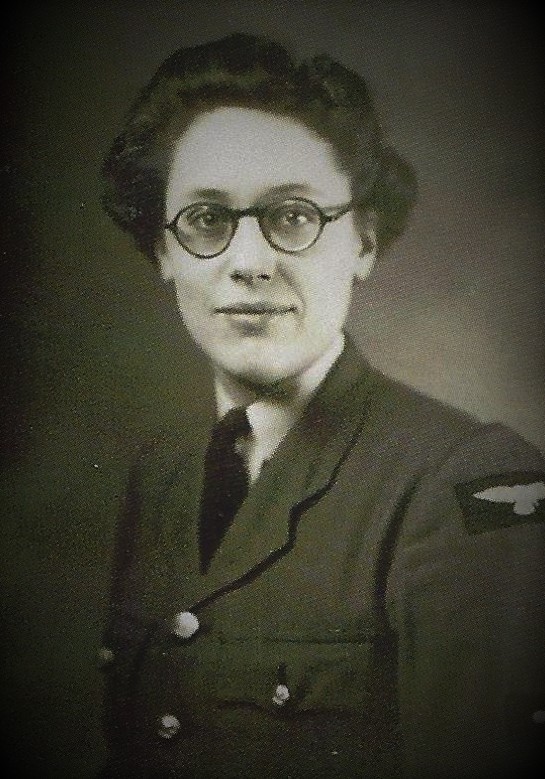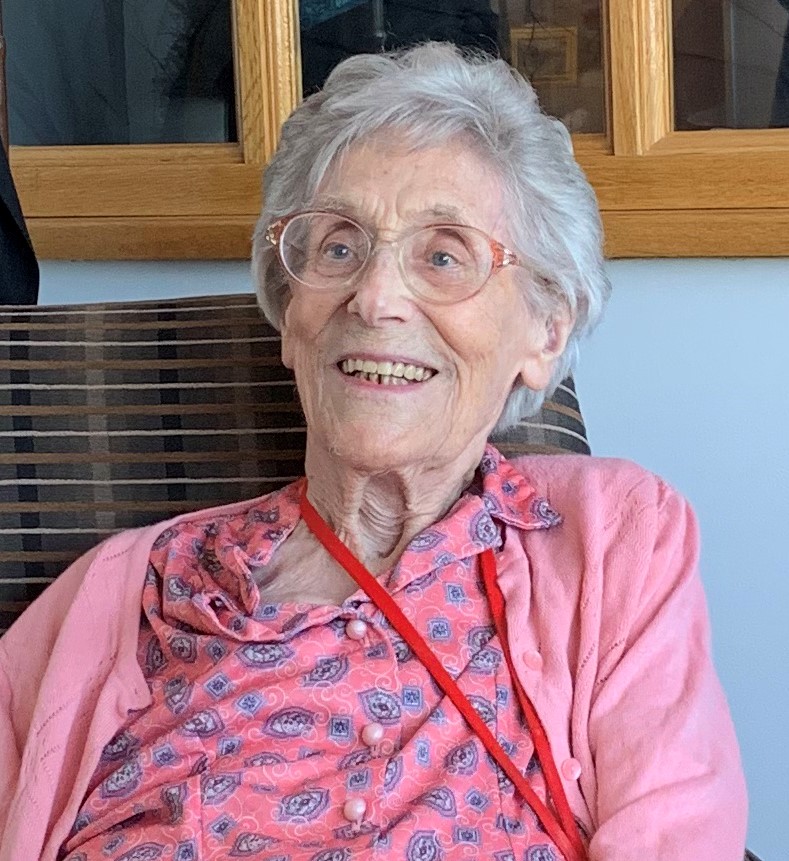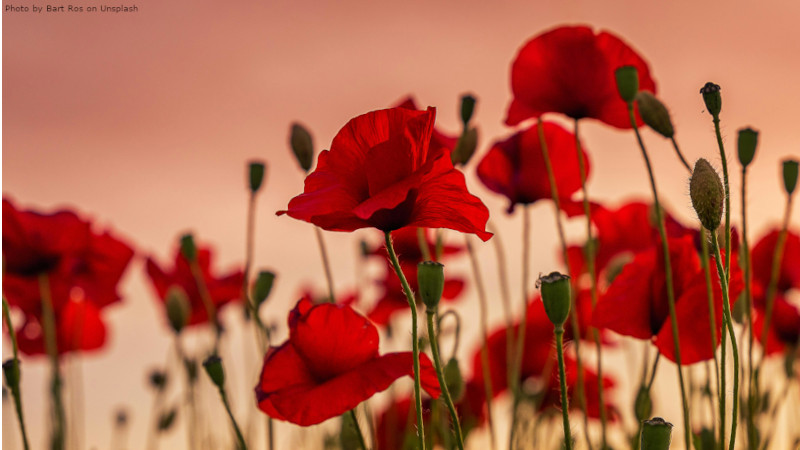This remembrance weekend we honour the memory of our longest living member, Joyce Wrigley. The second half of her 102 years were spent in Margate after the Second World War largely shaped her life. Here’s her story.
Born in West Ham, Joyce came from sturdy Somerset stock. Her grandfather mined tin and gold, ending up in South Africa. Joyce grew up sharing a toilet with those in neighbouring flats – and formed lifelong friendships with three girls in them.
Fourteen was then school leaving age. It was decision time. Joyce didn’t want factory work and instead entered a Whitechapel Stationers.
Joyce also decided it was time publicly to declare that she wanted to follow Jesus Christ. She came forward to be immersed in the pool of the baptistry of Upton Baptist Church. To Joyce this meant that testifying that she was a sinner but that Jesus had washed her clean because he’d taken her punishment on the cross.
At eighteen, Joyce had a great improvement to her standard of living. Her family exchanged a West Ham flat for a Rainham semi with its own bathroom and large garden.
But that same year the Second World War began. By the winter of 1940, East London became a focus for the Nazi night bombings. Joyce recalled walking from Mile-end to Haymarket stepping over hoses amidst still-smouldering buildings.
Fed up of the cold and damp of the Anderson shelter, after a quiet week Joyce’s mum wanted to be back indoors. But her father insisted on staying downstairs. A bomb hit and the rear wall collapsed but Joyce and her family – unlike others – did not die. God preserved her life.
The family were rehoused in Canvey Island in 1941 and moved to South Benfleet in 1942. Joyce, preferring choice to conscription, volunteered for the Women’s Auxiliary Air Force and was posted to RAF Binbrook in Lincolnshire. Joyce remembered measuring fuel for tanker deliveries and must have been aware of significant losses amongst the bomber crews.

Joyce’s older brother, Wilfred, sadly died as a toddler when Joyce was still an infant. War brought further tragedy. Joyce lost her only surviving brother, Ted, on the convoys. Characteristically Joyce’s ultimate concern for Ted was not being saved from the Germans but saved from hell: that he had his sins forgiven and was ready to meet God.
Whilst at RAF Binbrook, Joyce attended the Baptist Church in Grimsby. She was regularly hosted by the Wrigley family. Their son, Hugh, was only once on home leave from the army but Joyce recorded that they were ‘not very enthusiastic’ about each other.
Demobbed in 1946, Joyce kept in touch with the Wrigley parents and others at the Grimsby Church. When Hugh came to London to study at Spurgeon’s College, Joyce’s parents decided to return the favour and show Hugh hospitality.
Joyce obviously became a little more enthusiastic when one Christmas she took the late train on Christmas Eve after work, spent Christmas in Grimsby, and returned on Boxing Day – “ for love” as she later recalled.
Joyce and Hugh were not superstitious – marrying on 13/8/49. Joyce’s wedding dress was borrowed; she may have been the final one of the four West Ham friends to be make use of it.
Joyce’s commitment to the Lord Jesus Christ was seen in marrying Hugh. Life as the wife of a Baptist Minister came with an extra series of responsibilities and without secure posts or large income.
A favourite hymn, probably sung at her wedding expresses well Joyce’s faith:
In heavenly love abiding,
No change my heart shall fear;
And safe is such confiding,
For nothing changes here:
The storm may roar without me,
My heart may low be laid;
But God is round about me,
And can I be dismayed?
God had already kept Joyce safe amidst the storms of war and she trusted him for the future.
Her faith was clearly shared with her husband. Hugh had been gaining qualifications for banking. However, a brush with death when he was injured but not killed fighting in Italy led Hugh to decide to spend his life as a baptist minister.
Joyce and Hugh spent time in Cleethorpes, Ashdon in Essex and in Ryde on the Isle of Wight. By this time Joyce was mother to four. She had also gained a fridge but still had no central heating.
Then came a move which must have been tough. Hugh left his current post on a matter of principle meaning losing home and income. Joyce came with the four children and Hugh to Margate where Hugh sought a job as a school-teacher whilst seeking to restart a church (then called Rehoboth) which had fallen on hard times.
No doubt Hugh was expressing the sentiment of both when he recalled: “A telephone call came from a Headmistress in Ramsgate for an interview, this was successful, so was an application for a mortgage, and for the purchase of a house; and all on the same day! ” all things work together for good to them that love God, to them who are the called according to His purpose (Romans 8:28).”

Joyce continued her life of service by looking after first Hugh’s mum and then her own mother in their later years. She loved her family but grieved for Hugh when his death on the verge of retirement left a her a widow for over 30 years.
What characterised this extraordinary lady? It was clear to all that she had a strong faith. But she did not just view this as a personal thing – she wanted to share it. She prayed, right up until the end of her long life, that those she knew and loved might come to share her Saviour.
Joyce was a lovely lady but she never claimed that good people got to heaven. She said that forgiven people got to heaven. Joyce entered heaven from Grenham Bay Court. Will you see her there one day?
If you have any questions or would like to know more please contact us.

